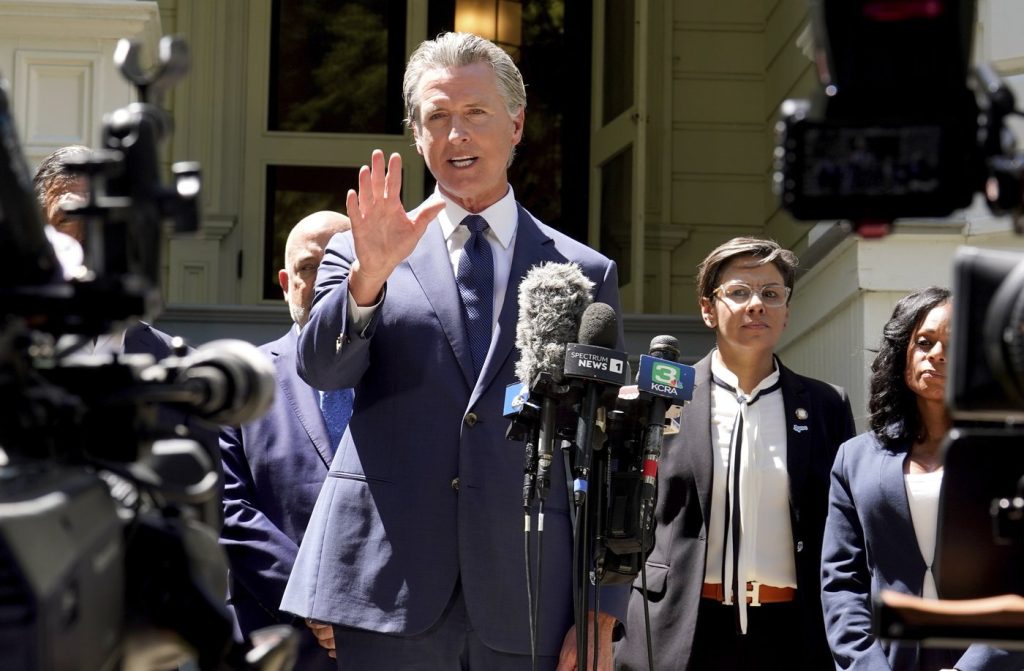In an urgent response to political dynamics in the U.S. House, California Democrats are actively contemplating an emergency election to redraw congressional districts. This initiative aims to counter the actions of Texas Republicans, who are also seeking to alter district lines. However, this abrupt push has created a significant logistical challenge for county officials in California, who are being prompted to prepare for an election that has yet to be officially scheduled.
With nearly 23 million registered voters spread across 58 counties, organizing an election is a monumental task under any conditions. Nonetheless, California’s Democratic Governor, Gavin Newsom, along with a Democratic-majority legislature, has failed to meet deadlines that would allow adequate planning time for local election officials. These preparations encompass a wide range of activities, including the printing of mail ballots in various languages, staffing requirements, and the securing of locations for in-person voting.
The proposed redistricting plans could potentially eliminate five Republican-held House seats, thus strengthening Democratic incumbents in critical districts. If these new maps are successful, Republicans may only retain four of the 52 congressional seats in the state. The revised maps are expected to be released soon, with speculation that they could be introduced in advance of a November 4 election.
The California Secretary of State, Shirley Weber, held a meeting with local election officials to discuss plans for what could be a special election. Although an official election has not been proclaimed, Weber's spokesperson noted that preparations must begin promptly in anticipation of its potential occurrence.
One of the pressing concerns for local officials is the financial aspect of conducting this potential election. There is uncertainty over whether the state will bear the costs, or if counties—many of which are already facing budget constraints—will shoulder the financial burden themselves. A previous special election, where Governor Newsom successfully fended off a recall attempt, cost over $200 million.
Bob Page, the Orange County Registrar of Voters, expressed concerns over the tight timelines and emphasized the urgency of making decisions despite the lack of official announcements from the legislature and the governor. He noted that waiting could jeopardize the ability to conduct the election effectively.
Similarly, Dean Logan, the Los Angeles County Clerk, highlighted that without upfront funding and a well-defined electoral calendar, counties could face significant challenges in meeting the necessary requirements for conducting a fair election. He reiterated the importance of preparing adequately to ensure that voters are served accurately and equitably.
The political tug-of-war between Texas and California—two of the most populous states in the U.S.—is part of a broader effort to reshape congressional power dynamics. This initiative was fueled when former President Donald Trump called on Texas to revise its district lines, arguing that the GOP's tenuous majority in the House was at stake for the upcoming 2026 midterm elections. Trump claimed that the Democratic-controlled California districts were unfairly benefiting the party while disadvantaging Republicans.
As part of this intricate political strategy, Newsom has indicated that he will only proceed with the election if the state of Texas moves forward with its own redistricting plan. However, Texas Democrats successfully thwarted immediate Republican efforts by leaving the state, thus preventing a quorum needed for legislative votes.
Furthermore, Page outlined that state regulations require the governor to issue a proclamation for a statewide election at least 148 days before the election date, which fell on June 9 for the upcoming vote. This raises concerns that formal action from the legislature and governor is essential to meet this timeline, failing which it could be too late for county officials to organize the election.
Finally, Page mentioned potential enforcement from the U.S. Justice Department if ballots are not sent to military members and overseas voters by September 20. This underscores the high stakes and tight deadlines facing local election officials in California as they navigate the uncertainties of an emergency election amidst complex political maneuvering.











